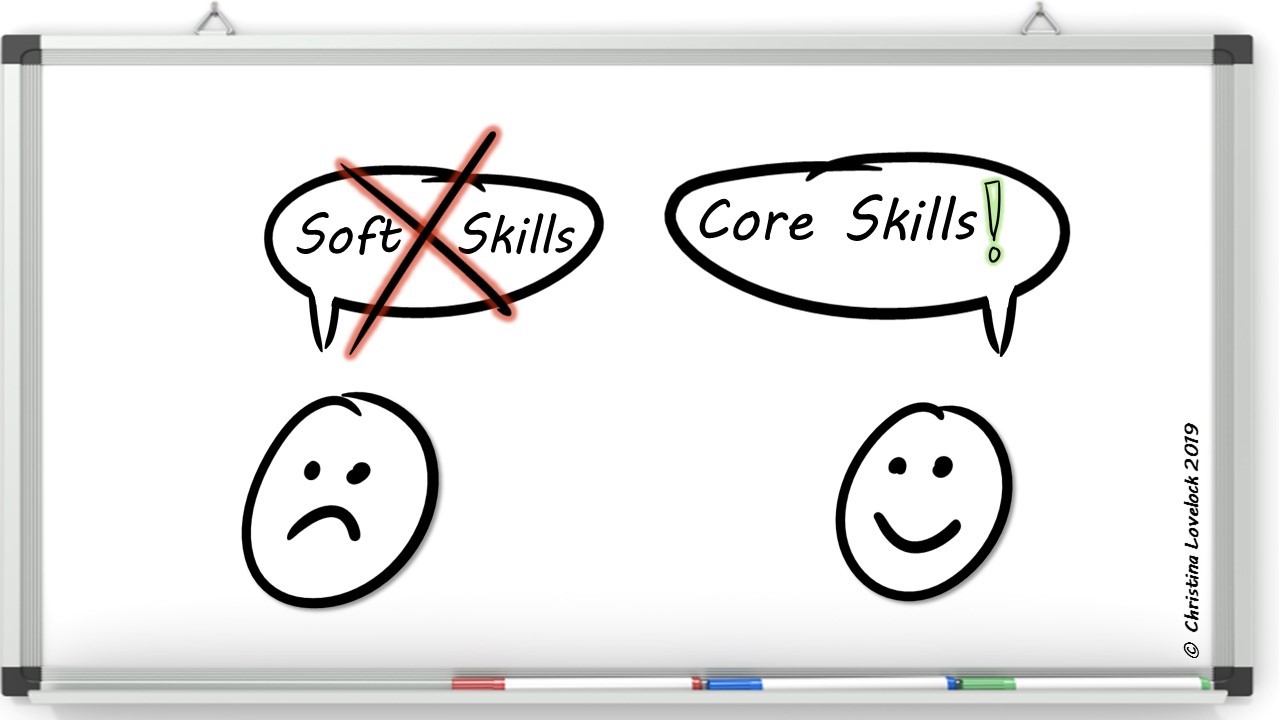
Stop Saying Soft Skills
This term has always been at best inadequate, and at worst dismissive and belittling, but there has not been a suitable alternative that everyone could use consistently.
Now there is: Core Skills.
We have clearly been searching for a replacement for the phrase, as there are a range of alternatives in use, including:
- Personal skills
- Interpersonal skills
- People skills
- Social skills
- Behavioural skills
- Communication skills.
None of these options manages to convey the ‘fundamental-ness’ of these skills, they still sound like optional/nice to have/the icing on the cake. The core skills are the cake. Technical skills which are (comparatively) much easier to learn and develop are the icing.
Consider these two statements:
- “That candidate was great technically, but is lacking in soft skills.”
How this sounds: they have most of what we are looking for, we may still hire them. - “That candidate was great technically, but is lacking the core skills.”
How this sounds: they don’t have what we are looking for, it is unlikely we will hire them.
Hire for attitude and aptitude, develop for technical skills. It saves organisations a fortune in the long run. Or to put this another way:
“Do not tolerate brilliant jerks. The cost to teamwork is too high.” [Reed Hastings, CEO, Netflix]
It is an adage in HR that “We hire for skills and fire for behaviours”. Hiring someone with ‘the right’ experience and great technical ability may seem like a shortcut to success, but if they demonstrate poor core skills the risk outweighs the reward.
That is not to say that having the core skills with no technical business analysis skills or abilities makes you a BA, but over the course of your career you will be a better BA because of your core skills.
The best business analysts value and continue to develop their core skills.
How do they do this? By:
- seeking feedback
- identifying role models
- practicing self-reflection
- increasing self-awareness
- attending events, training and conferences
- reading and personal research
- setting goals
- engaging a coach.

Conclusion
Soft skills is no longer a useful term for the modern digital workplace. We can each make the decision to stop using it. This is completely achievable, if you are in any doubt, try to recall the last time you heard the phrase ‘information super-high-way’!
It’s time to adopt a phrase which recognises these skills for the importance they have on effective relationships, team performance and organisational success.